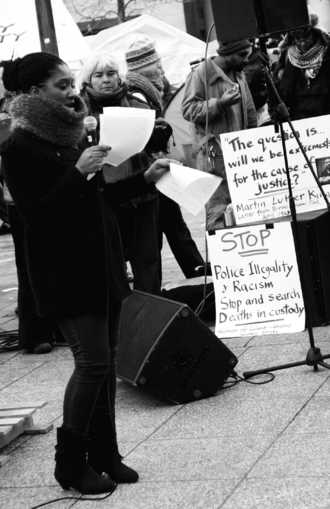 Our legal system is failing the 99%. Within this term coined by the Occupy movement I include the myriad of non-human species humanity has co-evolved with over millennia. Injustice for the Earth has become the norm as the legal system in most Western societies consistently prioritises the growth of the industrial economy.
Our legal system is failing the 99%. Within this term coined by the Occupy movement I include the myriad of non-human species humanity has co-evolved with over millennia. Injustice for the Earth has become the norm as the legal system in most Western societies consistently prioritises the growth of the industrial economy.
Securing more environmental regulation or the better enforcement of current law is not going to save our planet. The injustice being systematically perpetrated against the environment is an inevitable consequence of our legal system.
For example, in the UK at least, company law requires directors to maximise profit for the shareholders. This imperative will always be incompatible with the preservation of the environment. By contrast, environmental law, even in its most protective form, simply regulates the destruction of the environment – think of the system of ‘permits’ and ‘licences’ there are for corporations and persons to carry out environmentally harmful acts. The primary purpose of environmental law is not to protect, but to facilitate harm within a weak regulatory framework.
But there are “Earth-loving” lawyers who are advocating a completely new approach to law. For example, an organisation called Wild Law UK is advocating ‘eco-centric’ law – that is, laws that promote the health and well-being of our planet as a whole. Eco-centric laws could also be used as a consciousness-raising tool, to encourage people to respect nature and strengthen community links to their local environment. A US non-profit organisation called the Community Environmental Legal Defense Fund is having success in drafting Community Rights Ordinances (ie. local laws), for towns in the US. These Ordinances entrench the right of the community to local self-government, they limit the legal rights of corporations, and recognise the rights of communities and ecosystems to exist and flourish. This approach is yet to be tested in the UK, but it’s an exciting possibility. Eco-centric law gels well with ecological economics too – which, to paraphrase Herman Daly, recognises the economy as a subset of ecology – not the other way around.
A global example of an eco-centric law is the Universal Declaration of the Rights of Mother Earth, which was agreed by 35,000 people at the World People’s Conference on Climate Change and the Rights of Mother Earth in Bolivia in April 2009. This conference was called following the failure of the Copenhagen climate conference to produce any fair and meaningful deal to reduce greenhouse gas emissions and avoid dangerous climate change. The Declaration acknowledges that all life is interconnected and that human beings are responsible for living in harmony with the Earth. It also acknowledges the right of other beings to exist and to be respected, among other fundamental rights. There is now a global campaign to get the Declaration adopted at UN level but there are powerful forces at work that are trying to block this being on the agenda at the Earth Summit in Rio in June 2012. Occupy has much in common with the movement to recognise Earth rights – our struggles are the same – including the fight against the imposition of market-based ‘solutions’ to systemic problems like climate injustice.
Another example of eco-centric law is the Eradicating Ecocide campaign being waged by pioneering lawyer Polly Higgins. Ecocide is the environmental equivalent of Genocide. Think the tar sands are bad? Wondering why BP was allowed to get away with deepwater drilling for oil in the Gulf of Mexico in circumstances that seem incredibly hazardous from an ecological point of view? If Ecocide was made the 5th international crime against peace, as Polly Higgins proposes, this would deter corporations from embarking on ecologically reckless acts in the first place.
We need deep change in our society, and the law is one place we can begin because it is one of the primary ways our society governs itself.
www.wildlawuk.org
Melanie Strickland






